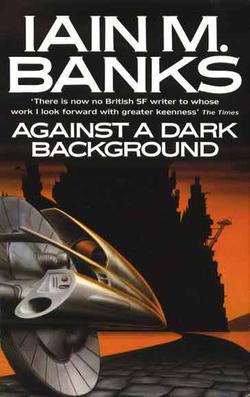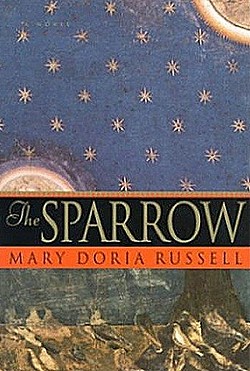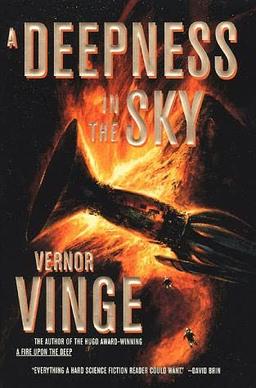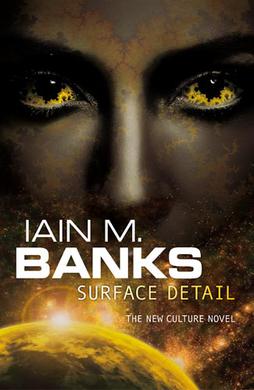
Iain Banks was a Scottish author, writing mainstream fiction as Iain Banks and science fiction as Iain M. Banks, adding the initial of his adopted middle name Menzies. After the success of The Wasp Factory (1984), he began to write full time. His first science fiction book, Consider Phlebas, appeared in 1987, marking the start of the Culture series. His books have been adapted for theatre, radio, and television. In 2008, The Times named Banks in their list of "The 50 greatest British writers since 1945".
The Culture is a fictional interstellar post-scarcity civilisation or society created by the Scottish writer Iain M. Banks and features in a number of his space opera novels and works of short fiction, collectively called the Culture series.

Inversions is a science fiction novel by Scottish writer Iain M. Banks, first published in 1998. Banks has said "Inversions was an attempt to write a Culture novel that wasn't."

The State of the Art is a short story collection by Scottish writer Iain M. Banks, first published in 1991. The collection includes some stories originally published under his other byline "Iain Banks", as well as the title novella and others set in Banks's Culture fictional universe.

Against a Dark Background is a science fiction novel by Scottish writer Iain M. Banks, first published in 1993. It was his first science fiction novel not to feature, or be set in, the Culture.

Mary Doria Russell is an American novelist.

The Sparrow (1996) is the first novel by author Mary Doria Russell. It won the Arthur C. Clarke Award, James Tiptree Jr. Award, Kurd-Laßwitz-Preis and the British Science Fiction Association Award. It was followed by a sequel, Children of God, in 1998. The title refers to Gospel of Matthew 10:29–31, which relates that not even a sparrow falls to the earth without God's knowledge thereof.

A Deepness in the Sky is a science fiction novel by American writer Vernor Vinge. Published in 1999, the novel is a loose prequel to his earlier novel A Fire Upon the Deep (1992). The title is coined by one of the story's main characters in a debate, in a reference to the hibernating habits of his species and to the vastness of space.

Kurd Lasswitz was a German author, scientist, and philosopher. He has been called "the father of German science fiction". He sometimes used the pseudonym Velatus.

The Kurd Laßwitz Award is a science fiction award from Germany. The award is named after the science fiction author Kurd Laßwitz. Eligible for nomination in all categories except for the Foreign Work category are only works published in German originally.
Hans Joachim Alpers was a German writer and editor of science fiction and fantasy. Together with Werner Fuchs and Ulrich Kiesow he founded Fantasy Productions, which became one of the premier German RPG- and board game producers and retailers. He was born in Bremerhaven.
The Culture series is a science fiction series written by Scottish author Iain M. Banks and released from 1987 through to 2012. The stories centre on The Culture, a utopian, post-scarcity space society of humanoid aliens, and advanced superintelligent artificial intelligences living in artificial habitats spread across the Milky Way galaxy. The main themes of the series are the dilemmas that an idealistic, more-advanced civilization faces in dealing with smaller, less-advanced civilizations that do not share its ideals, and whose behaviour it sometimes finds barbaric. In some of the stories, action takes place mainly in non-Culture environments, and the leading characters are often on the fringes of the Culture, sometimes acting as agents of Culture in its plans to civilize the galaxy. Each novel is a self-contained story with new characters, although reference is occasionally made to the events of previous novels.

Surface Detail by Iain M. Banks is a science fiction novel in his Culture series, first published in the UK on 7 October 2010 and the US on 28 October 2010.

Karlheinz Steinmüller is a German physicist and science fiction author. Together with his wife Angela Steinmüller he has written science fiction short stories and novels that depict human development on a cosmic scale, grounded in an analysis of social structures and mechanisms. Angela and Karlheinz Steinmüller were not only among the most widely read authors in the GDR, ranking at the top of a 1989 poll of most popular science fiction authors in the GDR, but their works continue to be republished.
Angela Steinmüller is a German mathematician and science fiction author. Together with her husband Karlheinz Steinmüller she has written science fiction short stories and novels that depict human development on a cosmic scale, grounded in an analysis of social structures and mechanisms. Angela and Karlheinz Steinmüller were not only among the most widely read authors in the GDR, ranking at the top of a 1989 poll of most popular science fiction authors in the GDR, but their works continue to be republished.
Deutscher Science Fiction Preis is a German literary award. Together with the Kurd-Laßwitz-Preis, it is one of the most prestigious awards for German science fiction literature. The award was established in 1985 by the Science Fiction Club Deutschland, a German Science Fiction society. Each year, the award is given to the best German science fiction short story and the best German novel from the previous year.
Christian Mähr is an Austrian chemist and science fiction writer. His novel Fatous Staub concerns parallel worlds, computers, and the mathematical work of Pierre Fatou. It won the Deutscher Science Fiction Preis and the Kurd-Laßwitz-Preis for 1992.
Peter Schattschneider is an Austrian physicist and science-fiction writer, a retired professor at the Institute of Solid State Physics and a staff member of the USTEM special unit of the Vienna University of Technology. His research focuses on electron microscopy, specifically on electron energy loss spectroscopy and the inelastic interactions between electrons and matter. He is also interested in the history of physics, the science in science fiction, and the role of science in society. His group was responsible for the discovery of electron magnetic circular dichroism in 2006.
Karsten Kruschel is a German science fiction writer, essayist and critic, who lives near Leipzig. His best known works are the Deutscher Science Fiction Preis winning novels Vilm and Galdäa. Some of his short stories were nominated for or won the Kurd-Laßwitz-Preis.

Gisbert Haefs is a German writer in several genres and translator. He has written historical novels such as Alexander, won both the Deutscher Science Fiction Preis and Kurd-Laßwitz-Preis in science fiction, and placed at the Deutscher Krimi Preis for crime fiction. As a translator he worked on a much criticized effort at translating works of Jorge Luis Borges into German.












